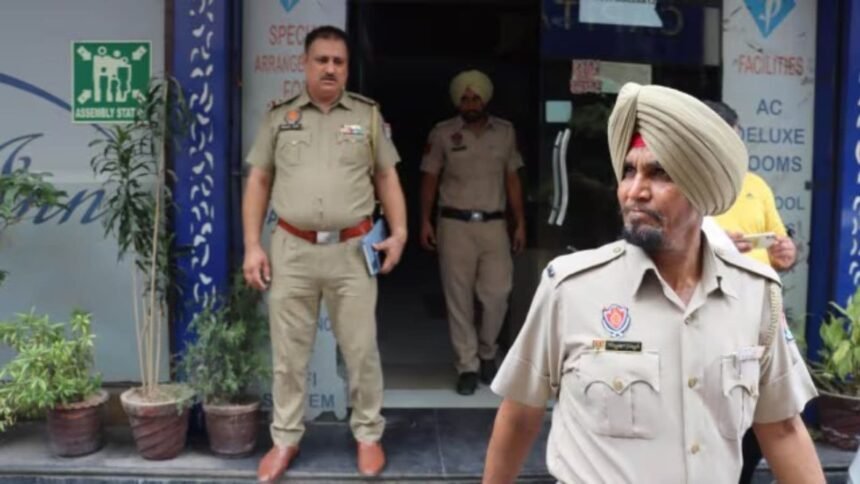The Supreme Court Monday refused to interfere with the Punjab and Haryana High Court order directing a CBI probe into the alleged assault on an Army colonel and his son by police personnel. Castigating the Punjab Police for the delay in booking the accused, the top court pointed out that they had not been arrested even after being denied anticipatory bail.
The two-judge bench, presided over by Justice Sanjay Kumar, was hearing an appeal filed by the accused personnel challenging the high court order.
“When the war is going on, you glorify these Army officers… Your SSP says, I am not able to arrest them in spite of rejection of anticipatory bail because they are police officers… Eight days delay in lodging FIR?! Have respect for Army people. You are sleeping peacefully in your house because that man is serving the border at -40 degrees…,” stated Justice S C Sharma, who was also part of the bench.
The case pertains to the alleged assault of Colonel P S Bath, currently serving as Deputy Secretary at the Cabinet Secretariat in New Delhi, and his son by a group of Punjab Police officers near a dhaba on the Patiala-Samana Road on the night of March 13-14 this year. The officer claimed the attack left him in a semi-conscious state, and despite multiple calls by his wife and brother-in-law to the local police and then Patiala Senior Superintendent of Police (SSP) Dr Nanak Singh, no First Information Report (FIR) was initially registered.
Justice Sharma warned that the appeal will be dismissed with heavy costs. “This kind of lawlessness is not acceptable,” he said.
The counsel for the appellants said the high court order had the effect of holding them guilty even before trial, but the Supreme Court bench did not agree. Justice Sharma told the counsel that there were “no legal arguments” to be made. “Nothing is there… Your bail was dismissed. They are roaming freely and have not been arrested… Let the CBI look into this… If you have nothing to hide, why do you feel shy of independent inquiry?”
Underlining the sacrifices of soldiers, he said, “They go and defend you, and they come back wrapped in a national flag.” The court eventually rejected the appeal, but stopped short of imposing costs on the appellants.
Story continues below this ad
The FIR in the case was registered at Civil Lines police station, Patiala, under several serious provisions of the Bharatiya Nyaya Sanhita (BNS) on March 22, days after the alleged attack and reportedly after an intervention from the Governor of Punjab. However, the officer alleged that another FIR had already been registered on March 15 based on a statement by the dhaba owner, possibly to pre-empt the complaint.
On April 3, the FIR was transferred to the Chandigarh Police based on a court order. Subsequently, the section pertaining to attempted murder was dropped from the case, following which Colonel Bath moved the court again.
On July 17, the high court transferred the investigation to the Central Bureau of Investigation (CBI), saying that the state “investigating agency is not only trying to create loopholes…but trying to make craters…so the prosecution case should hardly be able to crawl in the Court.”
The high court found “no prospects of free and fair investigation” in the case. “Without completing the investigation, when the Investigating Agency has already deleted the offence under Section 109 BNS (Section 307 IPC- attempt to murder), the approach is clear enough,” it said.
Story continues below this ad
Calling a fair investigation the “backbone of every criminal trial”, the high court said: “If the investigation itself is compromised, the trial before the Court loses its sanctity. The supremacy of the law is independent of the status of the accused.”
The high court added that it “cannot be a moot spectator” to a probe that had failed the threshold of neutrality. “This Court had entrusted the investigation out of the State of Punjab so as to ensure an impartial investigation — but the Court finds no change in the situation.”
Referring to the FIR filed by the dhaba owner, allegedly to justify the assault, the judge remarked that it appeared to have been “lodged in a premeditated manner to benefit the accused”.








